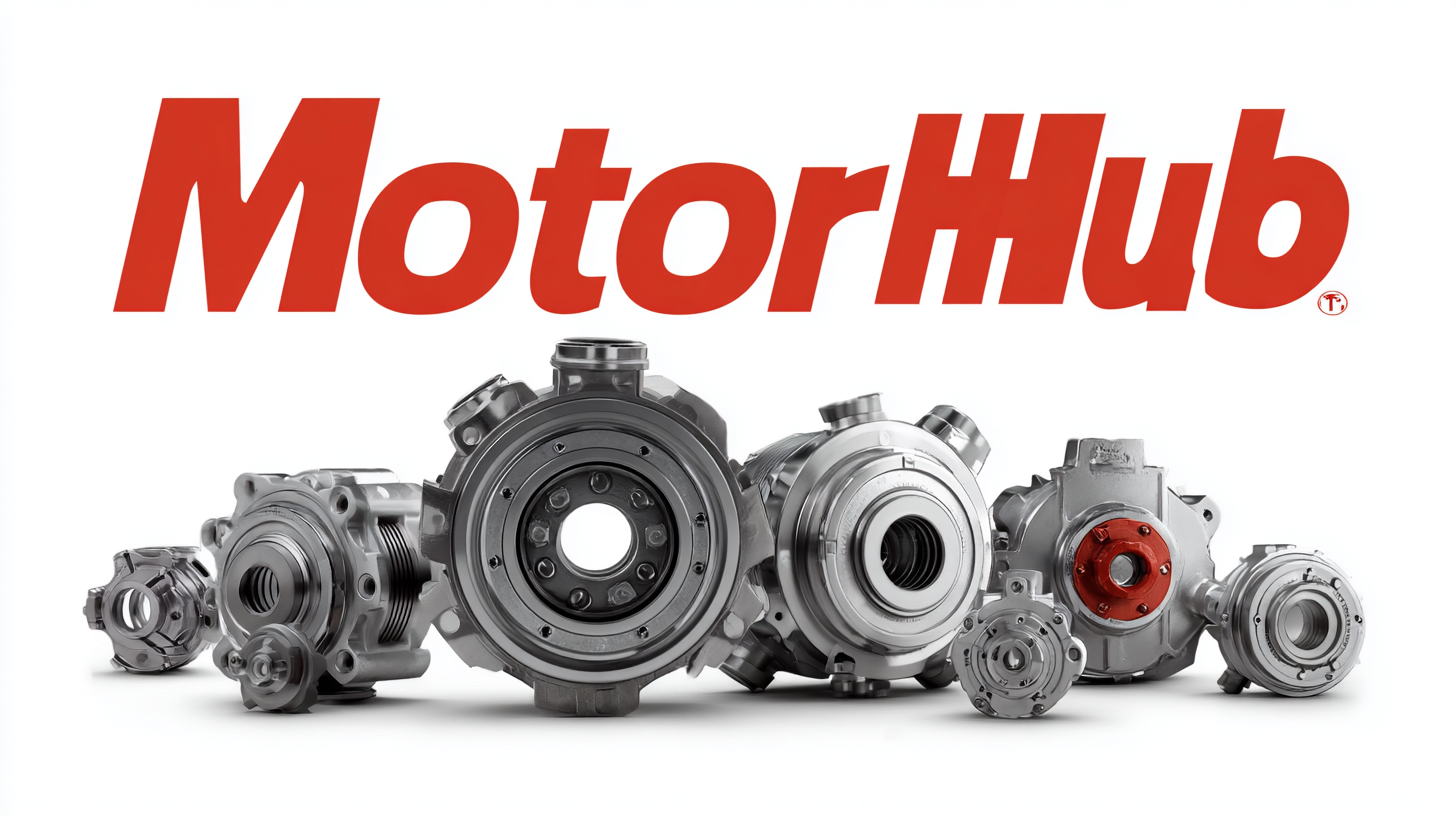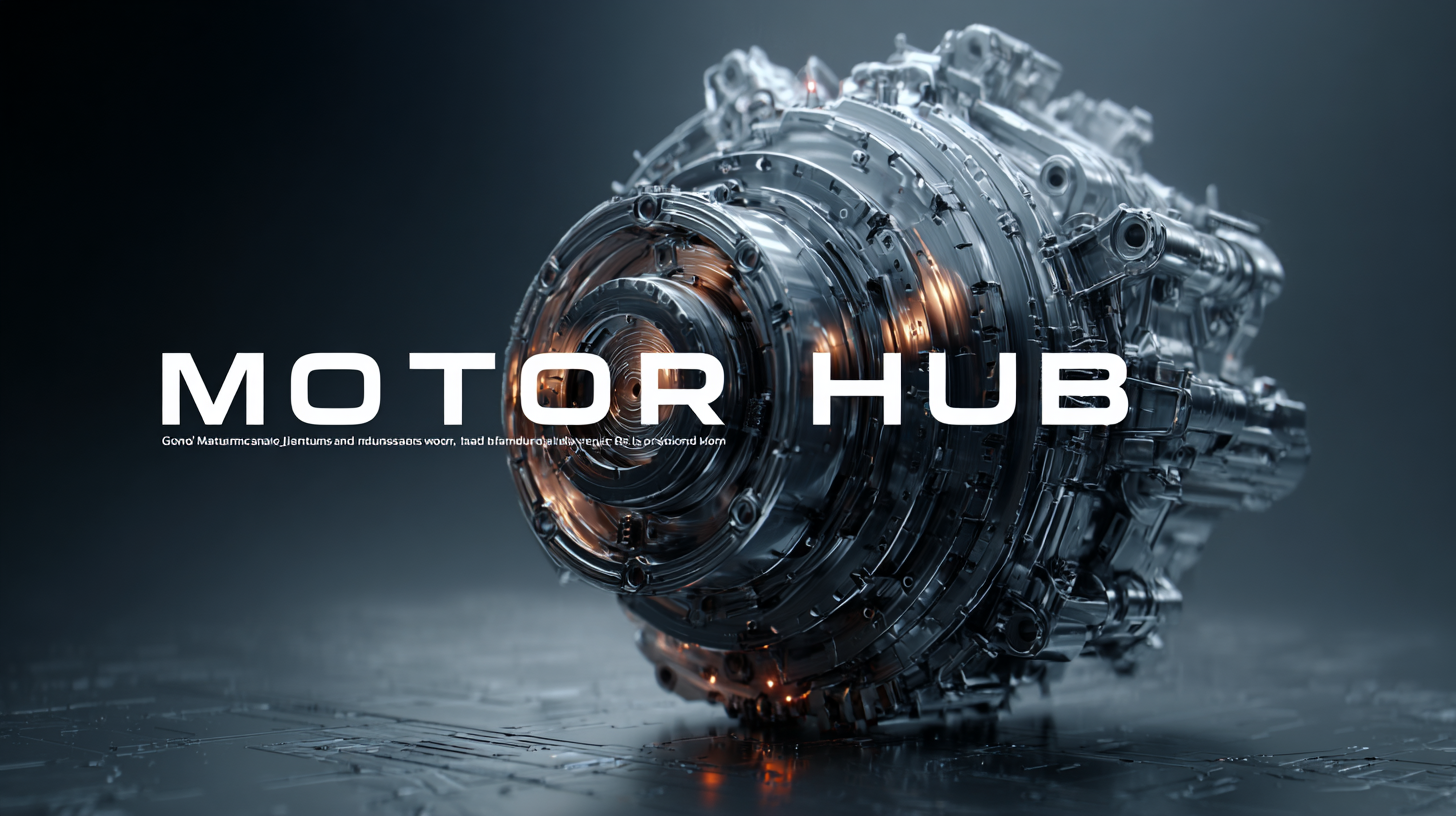
In today's rapidly evolving industrial landscape, the adoption of innovative technologies is paramount for maintaining competitive edge, particularly in supply chain operations. As highlighted in the "Industry 2025 Technology Trends" report by McKinsey, the integration of advanced components like Motor Hubs is essential for optimizing efficiency and enhancing productivity. The global market for Motor Hubs is projected to grow at a CAGR of 6.5% from 2023 to 2030, driven by increasing demand across various sectors including automotive, robotics, and manufacturing. Leading manufacturers are now focusing on developing high-performance Motor Hubs that not only improve reliability but also contribute to sustainability efforts by reducing energy consumption. This blog will explore the key players in the Motor Hub market, their innovations, and how they can meet your supply chain needs effectively.

The landscape of motor hub manufacturing is undergoing a significant transformation, driven by innovative technologies that enhance efficiency, precision, and sustainability. According to a recent report by the International Journal of Advanced Manufacturing Technology, the adoption of automation and AI in manufacturing processes has increased productivity by 20-30% across the industry. Robots equipped with machine learning algorithms are now capable of handling complex assembly tasks with minimal human intervention, allowing manufacturers to streamline operations while reducing errors.

Moreover, the integration of IoT (Internet of Things) technologies has revolutionized how manufacturers monitor and optimize their supply chains. A 2023 report from Gartner revealed that companies leveraging IoT solutions have observed a 25% reduction in maintenance costs, thanks to predictive analytics that foresee equipment failures before they occur. This capability not only extends the lifespan of motor hubs but also ensures that manufacturers can maintain consistency in production, thus meeting the evolving demands of the market with agility and reliability.
As these technologies continue to advance, they offer manufacturers unprecedented opportunities to remain competitive in an increasingly globalized market.
When selecting a modern motor hub for your supply chain, several key features can significantly impact performance and efficiency. First and foremost, consider the hub's power and torque capabilities. A robust motor hub should provide adequate power output to facilitate seamless operations, especially in high-load environments. Additionally, torque specifications are crucial; a higher torque rating allows for improved handling of heavy loads and enhances overall reliability.
Another important feature is the compatibility of the motor hub with existing systems and technologies. A versatile motor hub that can easily integrate with various control systems and software will reduce downtime and streamline processes. Moreover, features such as energy efficiency and low maintenance requirements can lead to long-term cost savings. Look for models with advanced cooling systems and durable materials that ensure longevity and minimize wear and tear, thereby optimizing your supply chain’s performance.
Finally, it's essential to consider the hub's scalability and adaptability. As supply chain demands evolve, your motor hub should accommodate changes in load and application without requiring complete replacements. A well-designed motor hub provides the flexibility needed to handle the dynamic nature of modern supply chains, ensuring that your operations remain agile and efficient.
This chart displays the key features of modern motor hubs based on various specifications such as torque capacity, weight, and efficiency ratings from leading manufacturers.
In today's fast-paced manufacturing environment, motor hubs have become essential components in optimizing supply chains. They play a crucial role in enhancing efficiency, reducing downtime, and improving overall production processes. Leading global manufacturers are stepping up to revolutionize supply chains with their innovative motor hub solutions, offering advanced technologies that meet the demands of various industries.

Top brands are focusing on developing motor hubs that integrate seamlessly with automation systems, enabling real-time monitoring and data analytics. This level of integration not only improves operational visibility but also allows manufacturers to anticipate potential issues before they escalate, thereby minimizing production delays. With the ability to customize motor hub designs, these brands cater to specific supply chain requirements, ensuring compatibility and enhancing performance across different applications.
As manufacturers continue to prioritize efficiency and sustainability, the evolution of motor hubs is poised to redefine industry standards in supply chain management.
The shift towards sustainability in motor hub production
is becoming increasingly significant in today's manufacturing landscape. With the wind turbine casting market
expected to reach $2.16 billion by 2023, growing at a
CAGR of 5.25% from 2024 to 2031, manufacturers are
under pressure to enhance their environmental impact. Innovations like thermoplastic composites are gaining
traction in the automotive sector, offering advantages such as higher recyclability and reduced storage
requirements, making them a sustainable alternative to traditional epoxy-based thermosetting composites.
As industry leaders such as Siemens release software that boosts sustainability in product design,
manufacturers can optimize processes that reduce waste and energy consumption. For instance, adopting
low-friction technologies in wheel hub designs can lead to impressive fuel savings—up to 7.30%—which not
only improves profit margins for logistics companies but also reduces their carbon footprints.
Tips:
In today’s rapidly evolving supply chain landscape, the future of motor hubs is poised to revolutionize operational efficiency. One of the most significant trends is the integration of advanced technologies such as IoT and AI. These innovations enable real-time monitoring and predictive maintenance, leading to minimized downtime and optimized performance. Manufacturers can leverage these insights to streamline processes, reduce costs, and enhance productivity, making motor hubs not just components, but vital players in the supply chain ecosystem.
Another key development is the shift towards sustainability. As global manufacturers become increasingly aware of their environmental impact, motor hubs are being designed with eco-friendly materials and energy-efficient technologies. This not only meets regulatory demands but also aligns with consumer preferences for greener products. The focus on sustainability is driving innovation, pushing manufacturers to create solutions that not only meet performance standards but also contribute to a more sustainable future, thereby enhancing the overall efficiency and resilience of supply chains.
